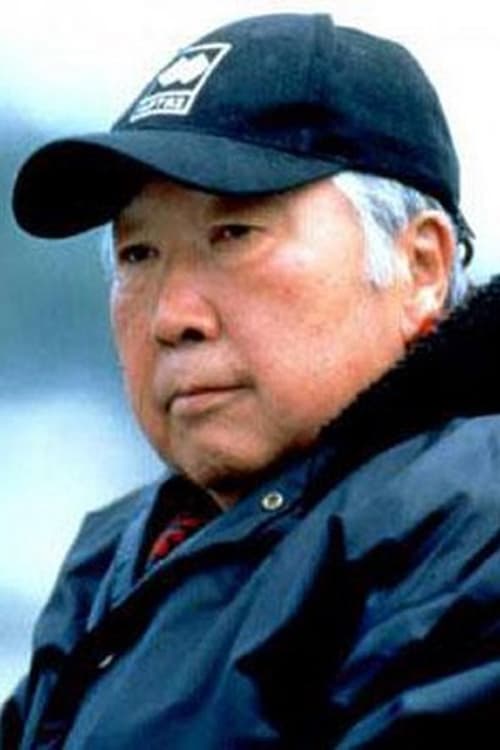
Director
Filmmakers from all over the world provide short films – each of which is eleven minutes, nine seconds, and one frame of film in length – that offer differing perspectives on the 9/11 terrorist attacks.
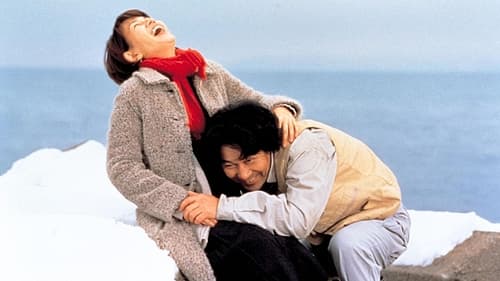
Screenplay
A down-and-out businessman travels to a seaside town, where he meets a woman with unusual sexual powers.

Director
A down-and-out businessman travels to a seaside town, where he meets a woman with unusual sexual powers.
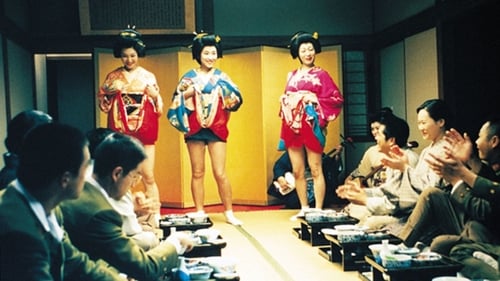
Writer
At the end of WWII, Japanese doctor Akagi searches for the cure for hepatitis in the prisoner-of-war camp.

Director
At the end of WWII, Japanese doctor Akagi searches for the cure for hepatitis in the prisoner-of-war camp.
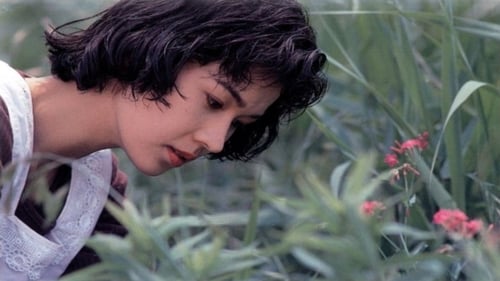
Writer
White-collar worker Yamashita finds out that his wife has a lover visiting her when he's away, suddenly returns home and kills her. After eight years in prison, he returns to live in a small village, opens a barber shop (he was trained as a barber in prison) and talks almost to no-one except for the eel he "befriended" in prison. One day he finds the unconscious body of Keiko, who attempted suicide and reminds him of his wife. She starts to work at his shop, but he doesn't let her become close to him.

Director
White-collar worker Yamashita finds out that his wife has a lover visiting her when he's away, suddenly returns home and kills her. After eight years in prison, he returns to live in a small village, opens a barber shop (he was trained as a barber in prison) and talks almost to no-one except for the eel he "befriended" in prison. One day he finds the unconscious body of Keiko, who attempted suicide and reminds him of his wife. She starts to work at his shop, but he doesn't let her become close to him.

Himself
Documentary about Japanese film director Shohei Imamura.

Executive Producer
Shigematsu Shizuma lives with his senile mother, his wife Shigeko, and his niece Yasuko in a village near Fukuyama. He, his wife, his niece and his close friends in the village were present at the atomic bombing of Hiroshima. The Shizumas look for prospective husbands for Yasuko, but find that the families withdraw on finding out she was at Hiroshima.

Writer
Shigematsu Shizuma lives with his senile mother, his wife Shigeko, and his niece Yasuko in a village near Fukuyama. He, his wife, his niece and his close friends in the village were present at the atomic bombing of Hiroshima. The Shizumas look for prospective husbands for Yasuko, but find that the families withdraw on finding out she was at Hiroshima.

Director
Shigematsu Shizuma lives with his senile mother, his wife Shigeko, and his niece Yasuko in a village near Fukuyama. He, his wife, his niece and his close friends in the village were present at the atomic bombing of Hiroshima. The Shizumas look for prospective husbands for Yasuko, but find that the families withdraw on finding out she was at Hiroshima.
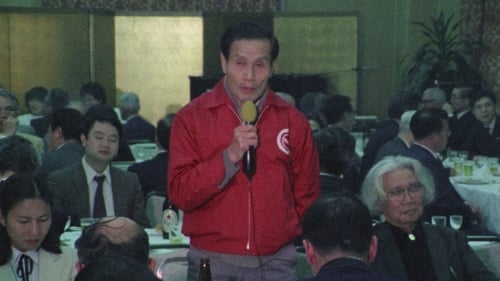
Associate Producer
Kenzo Okuzaki, a 62-year-old veteran of the New Guinea campaign in World War II, sets out to conduct interviews with survivors and relatives to find the truth behind atrocities committed while the Japanese garrison was surrounded, in particular the unexplained killing of two Japanese privates in his unit.
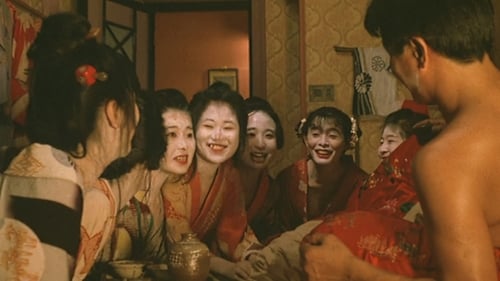
Writer
At the time between the World Wars, Japan is involved in empire-building throughout East and Southeast Asia. After a brief career as a low-level military adventurer, Iheiji sets up chains of brothels throughout Asia. As Japan's power in the region grows, so does Iheiji's prosperity and patriotism.

Director
At the time between the World Wars, Japan is involved in empire-building throughout East and Southeast Asia. After a brief career as a low-level military adventurer, Iheiji sets up chains of brothels throughout Asia. As Japan's power in the region grows, so does Iheiji's prosperity and patriotism.

Producer
2 almost inseparable friends. The talented painter recognized by all decided to leave the town where they live and become an artist and the shy poet who only sees his future in his mother's business.

Self
An extremely lovely tribute to Ozu, on the 20th anniversary of his death. It uses a combination of footage from vintage films and new material (both interviews and Ozu-related locations) shot by Ozu's long-time camera-man (who came out of retirement to work on this). Surprisingly (or perhaps not), it focuses less on Ozu's accomplishments as a film-maker than on his impact on the lives of the people he worked with..
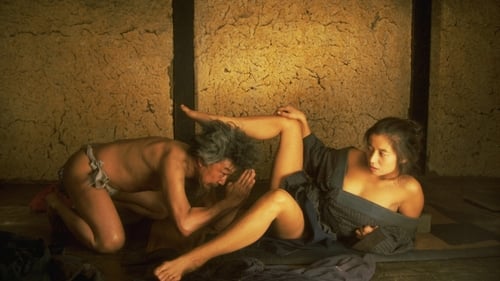
Screenplay
In a small village in a valley everyone who reaches the age of 70 must leave the village and go to a certain mountain top to die. If anyone should refuse they would disgrace their family. Old Orin is 69. This winter it is her turn to go to the mountain. But first she must make sure that her eldest son Tatsuhei finds a wife.

Director
In a small village in a valley everyone who reaches the age of 70 must leave the village and go to a certain mountain top to die. If anyone should refuse they would disgrace their family. Old Orin is 69. This winter it is her turn to go to the mountain. But first she must make sure that her eldest son Tatsuhei finds a wife.

Screenplay
The film depicts carnivalesque atmosphere summed up by the cry "Ei ja nai ka" ("Why not?") in Japan in 1867 and 1868 in the days leading to the Meiji Restoration. It examines the effects of the political and social upheaval of the time, and culminates in a revelrous march on the Tokyo Imperial Palace, which turns into a massacre. Characteristically, Imamura focuses not on the leaders of the country, but on characters in the lower classes and on the fringes of society.

Producer
The film depicts carnivalesque atmosphere summed up by the cry "Ei ja nai ka" ("Why not?") in Japan in 1867 and 1868 in the days leading to the Meiji Restoration. It examines the effects of the political and social upheaval of the time, and culminates in a revelrous march on the Tokyo Imperial Palace, which turns into a massacre. Characteristically, Imamura focuses not on the leaders of the country, but on characters in the lower classes and on the fringes of society.

Director
The film depicts carnivalesque atmosphere summed up by the cry "Ei ja nai ka" ("Why not?") in Japan in 1867 and 1868 in the days leading to the Meiji Restoration. It examines the effects of the political and social upheaval of the time, and culminates in a revelrous march on the Tokyo Imperial Palace, which turns into a massacre. Characteristically, Imamura focuses not on the leaders of the country, but on characters in the lower classes and on the fringes of society.

Director
A thief, a murderer, and a charming lady-killer, Iwao Enokizu is on the run from the police.
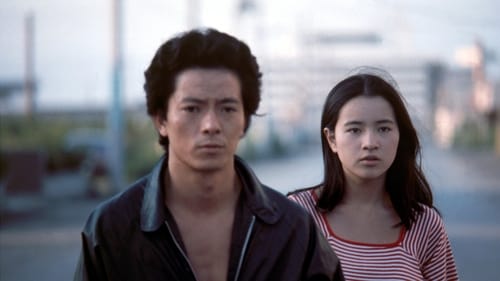
Producer
Though his parents help him run the family business, Jun still feels persecuted by their love; when they bar him from meeting with his girlfriend, tensions increase.

Himself
Karayuki-san, the Making of a Prostitute is a 1975 Japanese film by director Shohei Imamura. It is a documentary on one of the Japanese "karayuki-san," who were women that were taken from their homes in Japan and used as prostitutes in the post-war period. Many of these women were told that they were doing this to support their families because of the extreme poverty that the war left much of Japan to live in. Imamura focuses on a particular such woman who was sent to Malaysia and never returned to Japan. Joan Mellen, in The Waves at Genji's Door, called this film, "Perhaps the most brilliant and feeling of Imamura's fine documentaries."

Director
Karayuki-san, the Making of a Prostitute is a 1975 Japanese film by director Shohei Imamura. It is a documentary on one of the Japanese "karayuki-san," who were women that were taken from their homes in Japan and used as prostitutes in the post-war period. Many of these women were told that they were doing this to support their families because of the extreme poverty that the war left much of Japan to live in. Imamura focuses on a particular such woman who was sent to Malaysia and never returned to Japan. Joan Mellen, in The Waves at Genji's Door, called this film, "Perhaps the most brilliant and feeling of Imamura's fine documentaries."

Himself
“In Search of Unreturned Soldiers was about former soldiers of the Japanese army who chose not to return to Japan after the war. I found several of them who had remained in Thailand. Two years later, I invited one of them to make his first return visit to Japan and documented it in Outlaw-Matsu Returns Home. During the filming, my subject Fujita asked me to buy him a cleaver so that he could kill his ‘vicious brother.’ I was shocked, and asked him to wait a day so that I could plan how to film the scene. By the next morning, to my relief, Fujita had calmed down and changed his mind about killing his brother. But I couldn’t have had a sharper insight into the ethical questions provoked by this kind of documentary filmmaking.” —Shôhei Imamura

Director
“In Search of Unreturned Soldiers was about former soldiers of the Japanese army who chose not to return to Japan after the war. I found several of them who had remained in Thailand. Two years later, I invited one of them to make his first return visit to Japan and documented it in Outlaw-Matsu Returns Home. During the filming, my subject Fujita asked me to buy him a cleaver so that he could kill his ‘vicious brother.’ I was shocked, and asked him to wait a day so that I could plan how to film the scene. By the next morning, to my relief, Fujita had calmed down and changed his mind about killing his brother. But I couldn’t have had a sharper insight into the ethical questions provoked by this kind of documentary filmmaking.” —Shôhei Imamura

Director
Shohei Imamura’s short documentary.

Self
Shohei Imamura’s short documentary.
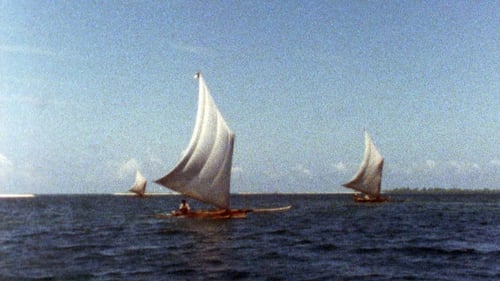
Writer
By going to the Philippines, Imamura comes to meet people living in an extreme poverty. He discovers very quickly that some communities are under the control of cruel & armed pirates. Imamura will come to meet those men in order to understand their position.

Himself
By going to the Philippines, Imamura comes to meet people living in an extreme poverty. He discovers very quickly that some communities are under the control of cruel & armed pirates. Imamura will come to meet those men in order to understand their position.

Director
By going to the Philippines, Imamura comes to meet people living in an extreme poverty. He discovers very quickly that some communities are under the control of cruel & armed pirates. Imamura will come to meet those men in order to understand their position.

Director
In Thailand, three Japanese soldiers, left in the jungle more than a quarter of a century after their country's defeat, come together to discuss what their life was like during and after the war.
Part two of Imamura's quest for Japanese soldiers who stayed behind after the war.
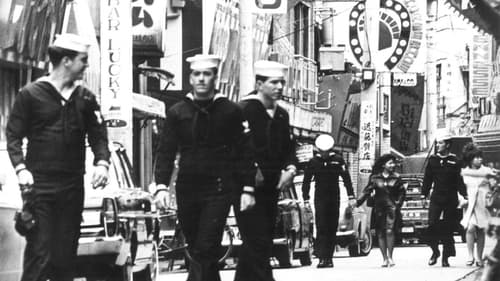
Writer
A documentary film showcasing life in postwar Japan as seen through the eyes of a bar hostess.

Director
A documentary film showcasing life in postwar Japan as seen through the eyes of a bar hostess.

Director
Famed filmmaker tracks down former Japanese soldiers in Malaysia.

Writer
Tokyo engineer Kariya arrives on a primitive tropical island, where he interacts with the Futori clan, to drill a well to power a sugar mill.

Director
Tokyo engineer Kariya arrives on a primitive tropical island, where he interacts with the Futori clan, to drill a well to power a sugar mill.

Producer
Rokurō starts a part-time job on a fishing boat, but the ship has an engine failure in the middle of the Pacific Ocean.

Writer
Rokurō starts a part-time job on a fishing boat, but the ship has an engine failure in the middle of the Pacific Ocean.

Writer
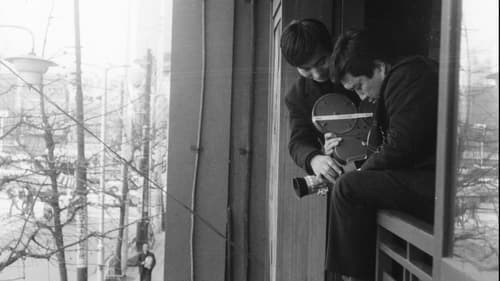
Producer
A Man Vanishes examines the concept of Johatsu, tackling the phenomenon of people missing in Japan over the years. It picks one such person from the list, someone who had seemed to disappear from the face of the earth due to embezzlement from his company, and the filmmakers begin an investigative documentary into the reasons behind and attempt at tracking him down.

Self
A Man Vanishes examines the concept of Johatsu, tackling the phenomenon of people missing in Japan over the years. It picks one such person from the list, someone who had seemed to disappear from the face of the earth due to embezzlement from his company, and the filmmakers begin an investigative documentary into the reasons behind and attempt at tracking him down.

Director
A Man Vanishes examines the concept of Johatsu, tackling the phenomenon of people missing in Japan over the years. It picks one such person from the list, someone who had seemed to disappear from the face of the earth due to embezzlement from his company, and the filmmakers begin an investigative documentary into the reasons behind and attempt at tracking him down.

Screenplay
Subu makes pornographic films. He sees nothing wrong with it. They are an aid to a repressed society, and he uses the money to support his landlady, Haru, and her family. From time to time, Haru shares her bed with Subu, though she believes her dead husband, reincarnated as a carp, disapproves. Director Shohei Imamura has always delighted in the kinky exploits of lowlifes, and in this 1966 classic, he finds subversive humor in the bizarre dynamics of Haru, her Oedipal son, and her daughter, the true object of her pornographer-boyfriend’s obsession. Imamura’s comic treatment of such taboos as voyeurism and incest sparked controversy when the film was released, but The Pornographers has outlasted its critics, and now seems frankly ahead of its time.

Producer
Subu makes pornographic films. He sees nothing wrong with it. They are an aid to a repressed society, and he uses the money to support his landlady, Haru, and her family. From time to time, Haru shares her bed with Subu, though she believes her dead husband, reincarnated as a carp, disapproves. Director Shohei Imamura has always delighted in the kinky exploits of lowlifes, and in this 1966 classic, he finds subversive humor in the bizarre dynamics of Haru, her Oedipal son, and her daughter, the true object of her pornographer-boyfriend’s obsession. Imamura’s comic treatment of such taboos as voyeurism and incest sparked controversy when the film was released, but The Pornographers has outlasted its critics, and now seems frankly ahead of its time.

Director
Subu makes pornographic films. He sees nothing wrong with it. They are an aid to a repressed society, and he uses the money to support his landlady, Haru, and her family. From time to time, Haru shares her bed with Subu, though she believes her dead husband, reincarnated as a carp, disapproves. Director Shohei Imamura has always delighted in the kinky exploits of lowlifes, and in this 1966 classic, he finds subversive humor in the bizarre dynamics of Haru, her Oedipal son, and her daughter, the true object of her pornographer-boyfriend’s obsession. Imamura’s comic treatment of such taboos as voyeurism and incest sparked controversy when the film was released, but The Pornographers has outlasted its critics, and now seems frankly ahead of its time.
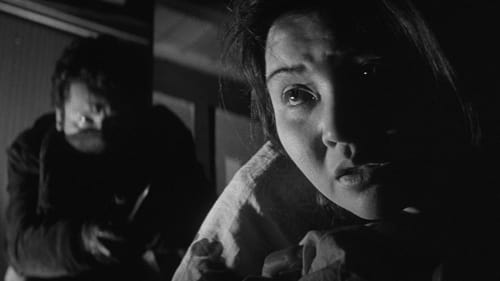
Screenplay
Sadako, cursed by generations before her and neglected by her common-law husband, falls prey to a brutal home intruder. But rather than become a victim, she forges a path to her own awakening.

Director
Sadako, cursed by generations before her and neglected by her common-law husband, falls prey to a brutal home intruder. But rather than become a victim, she forges a path to her own awakening.
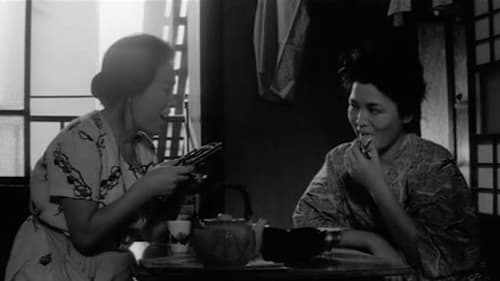
Writer
A woman, Tome, is born to a lower class family in Japan in 1918. The title refers to an insect, repeating its mistakes, as in an infinite circle. Imamura, with this metaphor, introduces the life of Tome, who keeps trying to change her poor life.

Director
A woman, Tome, is born to a lower class family in Japan in 1918. The title refers to an insect, repeating its mistakes, as in an infinite circle. Imamura, with this metaphor, introduces the life of Tome, who keeps trying to change her poor life.

Screenplay
One summer day, the chief monk of the Hojuin Temple dies. Harumichi rushes back to town hearing about his brother's death and requests for a grand funeral. He had been unwilling to take over the family business and had chosen a life as a middle school teacher far away from home, but considering the circumstances, he changes his mind. As the new chief of Hojuin, Harumichi scrambles around day after day for donations. He has kept strictly to the straight and narrow, until he passes a bicycle race track where the sounds of cheering fans induce him into a new way of life...

Screenplay
Tajima Yumi, in grade school, is overjoyed when her father says they are moving to an apartment in a big city. But the beautiful home she had imagined is in a slum area called Samurai Village, a little settlement, where people live from hand to mouth. To make things worse, a group of vagrants descends on the already crowded ragpickers' village. The sight depresses and saddens little Yumi, but when her father gives up drinking, it makes up for everything in her eyes, and when he runs past liquor shops to avoid temptation, Yumi's laughter rings out merrily again. A unique social drama depicting the growth of a new generation that confronts the world of adults full of vanity in the image of a girl living in poverty.

Screenplay
Set in Kawaguchi in the early 60s, this simple story chronicles the lives of foundry families and one girl's dreams of higher education.
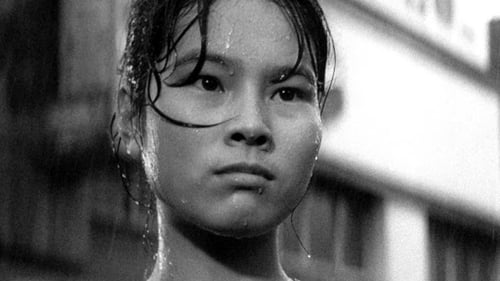
Director
In the city of Yokosuka, Kinta and his lover Haruko, both involved with yakuza, brave the post-occupation period with a goal to be together.

Screenplay
The film tells the story of four orphans living in an impoverished mining town. An adaptation of a best-selling book based on the diary of a ten-year-old zainichi (ethnic Korean Japanese) girl, it was one of the first films to deal with the subject of zainichi identity and struggles in Japan.

Director
The film tells the story of four orphans living in an impoverished mining town. An adaptation of a best-selling book based on the diary of a ten-year-old zainichi (ethnic Korean Japanese) girl, it was one of the first films to deal with the subject of zainichi identity and struggles in Japan.

Screenplay
Set in post-war Japan, a group of five, four men and one woman, gathers in the basement of a butcher shop to dig up a cache of morphine buried during the war. A grimly humorous tale of twisted relationships as one by one each of the group is eliminated.

Director
Set in post-war Japan, a group of five, four men and one woman, gathers in the basement of a butcher shop to dig up a cache of morphine buried during the war. A grimly humorous tale of twisted relationships as one by one each of the group is eliminated.

Screenplay
This short comedy concerns the extramarital affair of a drugstore owner. It is based on a popular song by the star of the film, Frank Nagai.

Director
This short comedy concerns the extramarital affair of a drugstore owner. It is based on a popular song by the star of the film, Frank Nagai.

Director
A rumbunctious and ribald tale of a troupe of travelling actors who alternate highlights of kabuki theatre with strip shows.
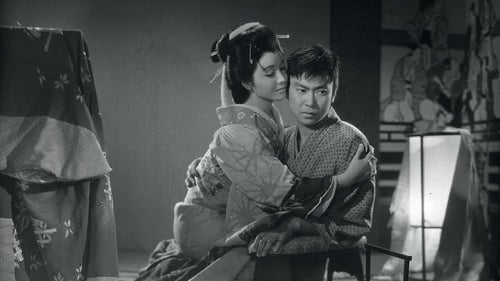
Screenplay
Saheji, a man-about-town, gets stuck at a high-class brothel when he can’t pay the bill. He makes the best of his situation by performing various tasks amidst the tumult of the end of the shogunate—but always by making sure to get a “commission” for his troubles.

Assistant Director
Saheji, a man-about-town, gets stuck at a high-class brothel when he can’t pay the bill. He makes the best of his situation by performing various tasks amidst the tumult of the end of the shogunate—but always by making sure to get a “commission” for his troubles.

Assistant Director
Reiko, who tolerates abuse in her marriage to a man 23 years her senior, is friends with Mayumi, a beautiful widow. Reiko meets her husband’s business rival, a young, capable businessman, and falls for him. Meanwhile, Mayumi enters into a relationship with Shimotsuma, a friend of her late husband.

Second Assistant Director
In 1906, after finishing a tough migrant job in the Philippines, Takichi has returned to Japan. He starts to work as a rickshaw driver, but his lover had died of an illness, leaving a baby girl, Hatsue. Hatsue grows up beautifully and falls in love with Shintaro. But Takichi objects to their relationship...
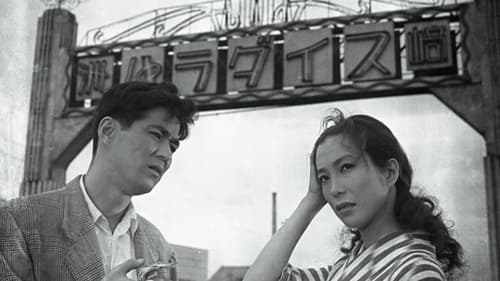
Assistant Director
A jobless young couple, Yoshigi and Tsutue, wind up at the outskirts of the Suzaki red-light district in Tokyo. Tsutue talks her way into a job pouring sake for male customers at a small bar run by a sympathetic older woman, while Yoshigi is shunted off into a nearby noodle shop, where he gets a job delivering noodles. Tsutue charms and runs off with one of her clients. Yoshigi, ignoring the attentions of a sweet co-worker, pursues Tsutue.

Assistant Director
Haruki Murakami is a successful family man and the head of a camera company. Unbeknownst to Murakami, his arrogant son oscillates between a mistress and a new lover who sings at a nightclub. When Murakami’s disabled daughter befriends the mistress, the affair throws the family into turmoil.

Writer
Haruki Murakami is a successful family man and the head of a camera company. Unbeknownst to Murakami, his arrogant son oscillates between a mistress and a new lover who sings at a nightclub. When Murakami’s disabled daughter befriends the mistress, the affair throws the family into turmoil.
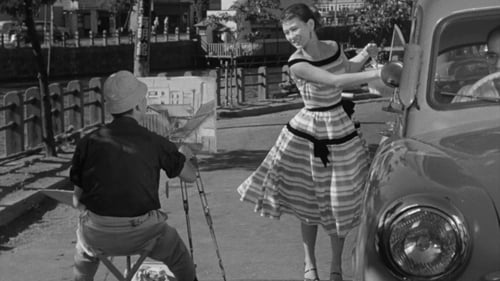
Assistant Director
In the thriving Tokyo neighborhood of Ginza, a woman in the process of selling her estranged husband’s art collection attempts to identify the man who painted her own portrait fifteen years prior.

First Assistant Director
Sonejiro sacrifices all comfort to devote himself to research. Young housewife Yachiyo is disappointed with her husband Kappei, who is more attracted to mountain climbing and another girl. When Yachiyo’s father is introduced to Sonejiro, good will turns evil, and all happiness is at stake.
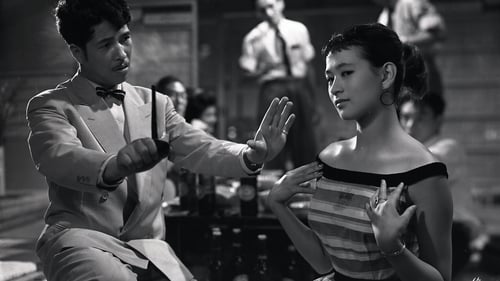
First Assistant Director
The female members of the family of the Minister of Health and Welfare, who has just proposed a program of birth control, become pregnant one after the other. - Nikkatsu

Assistant Director
Mokichi is the widowed father of three daughters, with whom he lives on the premises of a temple since the war. In the film all three daughters become involved in some sort of complicated relationships. The sisters and their attached Men are deliberately designed as allegorical figures on the changing social conditions. A wonderfully funny, sometimes droll comedy between Nara and Tokyo, Adagio and Allegro, Yesterday and Today - in search of a morning.
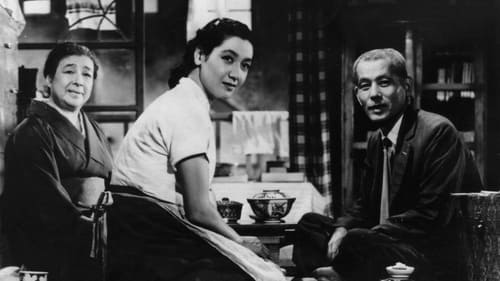
Second Assistant Director
The elderly Shukishi and his wife, Tomi, take the long journey from their small seaside village to visit their adult children in Tokyo. Their elder son, Koichi, a doctor, and their daughter, Shige, a hairdresser, don't have much time to spend with their aged parents, and so it falls to Noriko, the widow of their younger son who was killed in the war, to keep her in-laws company.
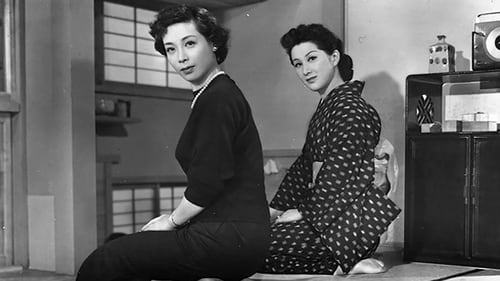
Assistant Director
Takeo, a capricious wife from Tokyo high society, is bored by her dull husband, a quiet and reliable company executive raised in the country. After a crisis, she understands better his true value. A parallel sub-plot shows her niece rebelling against the tradition of arranged marriages.
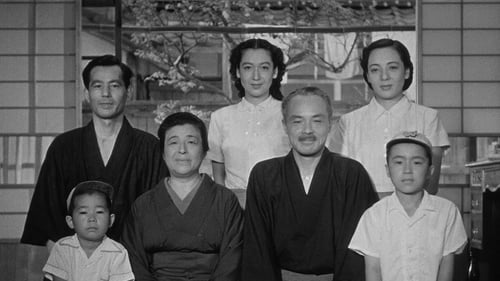
Assistant Director
A 28-year-old single woman is pressured to marry.

